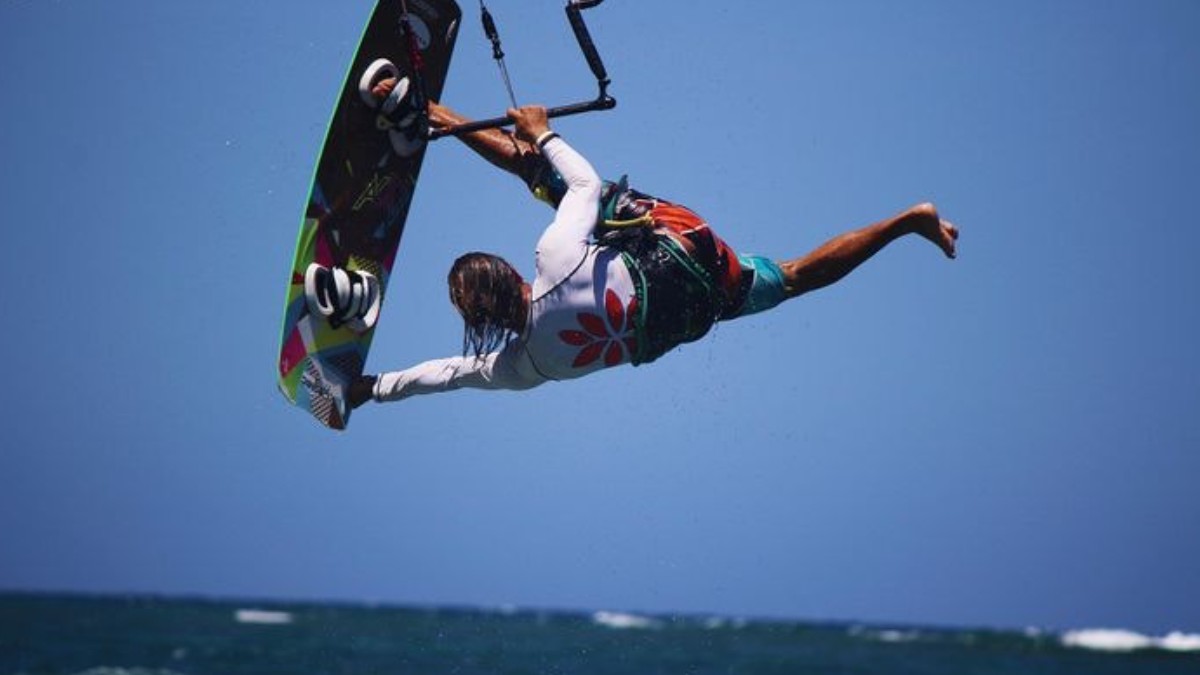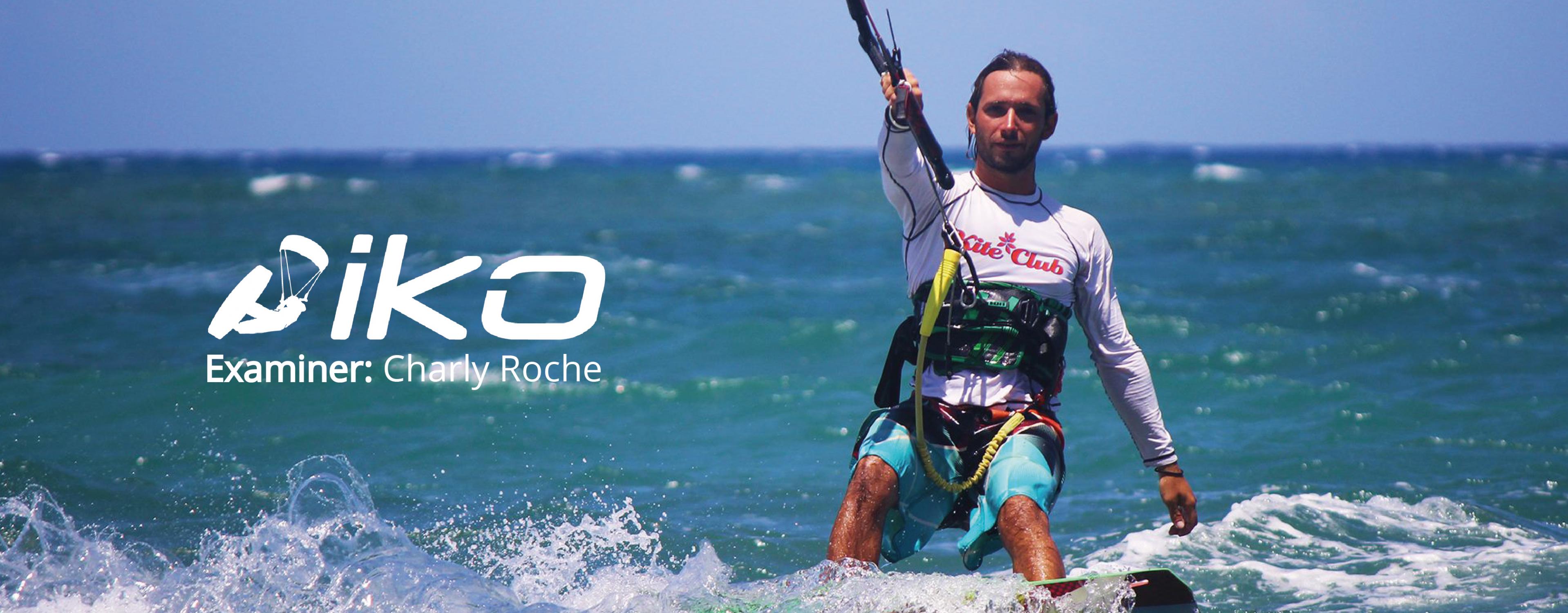Charly Roche was recently certified as an IKO Examiner. We met up with him to talk about his kitesurf career and his journey through the IKO pro training path.
How did you get into kitesurfing?
When I was 10 years old my parents moved to Cabarete in the Dominican Republic. A few years later I remember seeing the first kites appear in the sky and along with them some people crazy enough to give that new sport a go. I was at the same time very impressed and very eager to try it myself and sure enough a bit later, I did... without much success .Unfortunately, at that time I had to move back to France and my very short kite career had to be put on hold. It was only in 2010 that I came back to the Dominican Republic with the firm intention of showing that sport what I was made of. After only a few lessons my brother and I decided that it was time for us to get our very own kite equipment which we did thanks to our dad's financial help. After a few sessions, a lot of crashes and drinking a lot of salty water, I finally managed to ride, go upwind and even landed my first jumps. From that moment on I never looked back and went kiting every time I had the opportunity.
Tell us about your favorite kite spot or kite experience.
I really love Brazil and its huge variety of conditions from the very flat lagoons in Cumbuco to the very strong and gusty wind of Jericoacoara. Cape Town is also amazing, and a bit scary, with nuclear wind and huge kickers. I also like kiting in the beautiful Mediterranean Sea which has steady winds and a magical atmosphere. It’s really hard to pick one specific kite spot. The beauty of our sport is that we can find so many different conditions and vibes by travelling to one spot or the other. If I had to pick a specific spot it would be Cabarete in the Dominican Republic - flat water, waves, sun, amazing people and beautiful beaches. I’m happy to say it’s my home.
Why did you decide to pursue kitesurfing professionally?
After trying a lot of different jobs, I naturally gravitated towards kiteboarding, which was already a big part of my life at that time. Although my first time teaching was not exactly professional - I went to see a friend that runs a kite school and asked him to show me how to give kite lessons. The next day he introduced me to my first student. Gave me the necessary equipment and basically told me "there you go." A few stressful lessons later I decided to look for an instructor course in order to receive proper training. After doing some research on the internet, I found a course at Kite Club Cabarete with Jon Dodds and decided to sign up. This course was really an important moment for me. I discovered things I didn't know about kiteboarding and it definitely made me want to learn more about our sport .

Why did you become an IKO Examiner?
The IKO Examiner position was perfect for me. I get to travel to other countries and meet kiters with different backgrounds and experiences, but it's not only about that. Since I started kiting I have witnessed many accidents that could have easily been avoided if instructors had done their job properly and taught their students how to be independent and safe. I know it will make me sound like a politician but I do believe that the IKO Examiner position gives me the opportunity to have an impact on the kite community and make our sport safer.
How has this career affected your life?
Wow, that's a tough question to answer. One of the things I aimed for when doing my instructor course was to travel and kite a lot and it worked beyond my expectations. Teaching gave me the opportunity to go to Spain, Greece, Brazil, Argentina, Dominican Republic, South Africa, Holland and Italy. This career had a very positive influence on my life and it’s thanks to kitesurfing that I managed to travel to all these places and meet so many people.Hopefully I will get to travel to many more places. As they say in the Dominican Republic - "si dios quiere."
What advice would you give to your colleagues?
Don't be afraid to change your way of teaching. If you stay open minded and listen to other instructors, you’ll learn a ton of useful information that’ll allow you to improve your teaching. Unfortunately, too often old instructors are totally closed to new methods or constructive criticism and will tell you "my way is better, I have been doing it like this for XXX years." Listen to the others, if it makes sense try it and only after that you will be in position to say whether or not your way is better.
